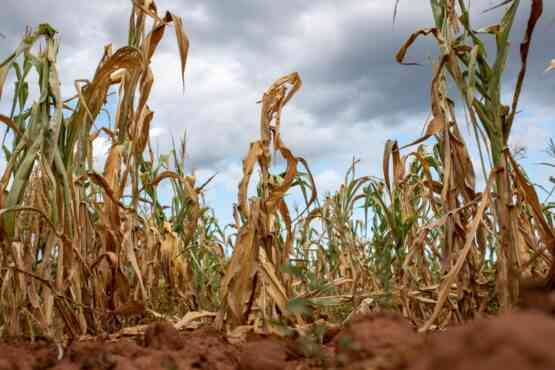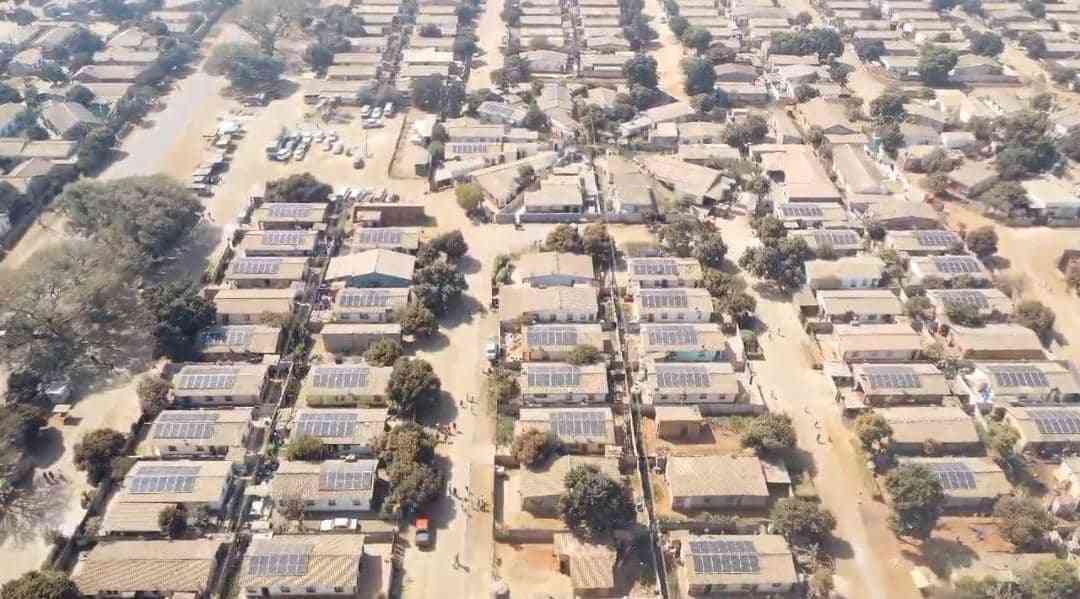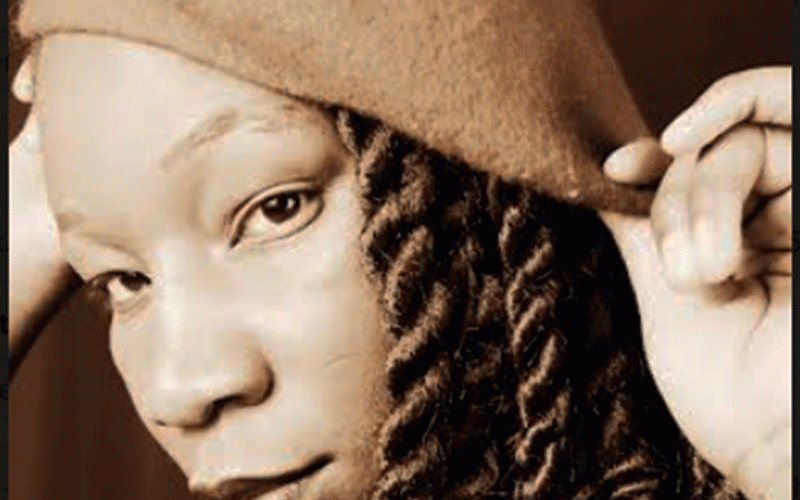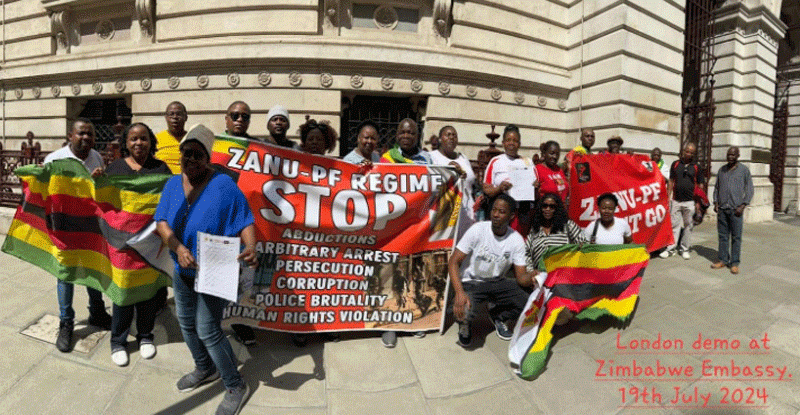
ZIMBABWE is just a matchstick away from anarchy going by the rising urban poverty levels where a significant number of people in urban areas must rely on food aid because they have no jobs or they earn below the breadline.
About 39% of Zimbabwe’s nearly 16 million population lives in urban areas or peri-urban settlements according to the 2022 national census. Urban areas have one unique identifier, concentrated population density and a potential rapid transmission of diseases in a pandemic or centre for chaos if they are riots.
Many people staying in urban areas have no access to consistent supply of potable water and working sewer systems. The local authorities have been poor on service delivery, with most roads needing repairs and garbage piling up on the streets.
The situation is made worse by labour reports that have shown only about 15% of the Zimbabwe labour force is in formal employment, the rest is in the informal sector. This informal sector includes the mushrooming tuckshops, commuter omnibus operators, outright street vending and some who operate home industries.
Above all, the economy has not been performing well. The currency question is still not finalised, high taxation and the majority outside the formal banking systems. The majority of workers have neither medical aid nor pension.
It, therefore, comes as no surprise during an El Niño-induced drought that millions in urban areas will depend on food aid. Yes, millions. The Zanu PF government has not been too clear on these issues, but this week acknowledged the dire situation.
In a post-Cabinet briefing this week, the government said: “The second round of crops, livestock and fisheries assessment of April 18, 2024; and the rapid village-based food assessment concluded on April 15, 2024 established that 6 million people in rural areas will require assistance between May 2024 and March 2025.”
Six million people in rural Zimbabwe need food assistance till March 2025. This could be said to have been expected, since most people in rural areas depend on agriculture. It is no secret that if there is a drought, the people will need food aid since most rely on natural rainfall rather than irrigation.
- Mavhunga puts DeMbare into Chibuku quarterfinals
- Bulls to charge into Zimbabwe gold stocks
- Ndiraya concerned as goals dry up
- Letters: How solar power is transforming African farms
Keep Reading
The government then turned to urban areas, and it had this to say: “The Zimbabwe livelihoods assessment committee (ZimLAC) report indicated that 1,7 million people who reside in urban areas will require assistance. A total of 7,7 million people, 51% of the population will require food assistance. This excludes a further 4,5 million who would require school meals.”
This is tragic when one in two, nationally, needs food aid. The ZimLAC urban livelihoods and nutrition assessment further noted that 35% of urban households are food insecure. It noted that “the proportion of food insecure households translates to 1 732 770 people”.
Let’s simplify the numbers. On average, one in three urban families does not have enough food and will depend on food aid. This is real poverty. Poverty that can be a bedrock of many social ills.
The report added: “The main youth development challenges reported by surveyed households are unemployment; drug and substance abuse and early marriages. The surveyed youths indicated that their priorities are job creation; income-generating activities; vocational training or skills development and start-up capital or loans.”
The combination of unemployment, drug and substance abuse and early marriages in addition to food insecurity is a recipe for disaster. It does not need rocket science that violence and riots will always be lurking close to the surface robberies and thefts will be on the increase and the social fabric of the community will break.
It is time that the Zimbabwe government should start relooking at the country’s social welfare system. As of now, the system is dead, really dead. The most immediate examples are how the State failed to cater for the welfare of Cyclone Idai victims and the COVID-19 pandemic havoc.
During Cyclone Idai, many of the donated food and materials were either looted or rot in warehouses according to Auditor-General reports on the matter. There was no clear criterion on the beneficiaries or line of command for the people involved in handling and distributing the materials to the affected persons.
COVID-19 pandemic further exposed the rot within the system. The government, through the Treasury, set aside money which was to be used for cash transfers to vulnerable groups. Just like Idai, there was no clear list of beneficiaries and as many as 120 000 NetOne cards pre-loaded with cash were never distributed.
Finance minister Mthuli Ncube then had infamously said that the ministry was using a “sophisticated algorithm” to identify beneficiaries and everything would go smoothly.
On the contrary, South Africa next door seems to be doing better in their social welfare system. Their process is clear and beneficiaries have cards that they use to withdraw cash from the bank.
In their current elections due at the end of this month, all major political parties have in the manifestos something on social welfare. They are of the view that the country should introduce a basic income grant, a stipend that caters for all people eligible for employment but can’t find one basic needs.
The Daily Maverick this week wrote: “The parties holding the top six slots in election polls all support a basic income grant, indicating that it will likely become one of the first big equity policies adopted after a new government is sworn in.
“The top six are the ANC, DA, EFF, MK, IFP and Action SA. They all support some form of basic income grant but were scored unevenly by the basic income coalition.”
This is how it should be.
It, therefore, follows that Zimbabwe should start this conversation on social welfare. Parties and the government must relook at how beneficiaries are identified, how much should beneficiaries get and how do they access the cash transfers. Social welfare grants bring dignity and reduce petty crimes of people trying to survive.
The dark clouds are looming on the horizon and action should be taken urgently. It’s too ghastly to contemplate what Harare will look like if 1,7 million get into the streets demanding a basic thing like food.
- Paidamoyo Muzulu is a journalist based in Harare. He writes here in his personal capacity.











